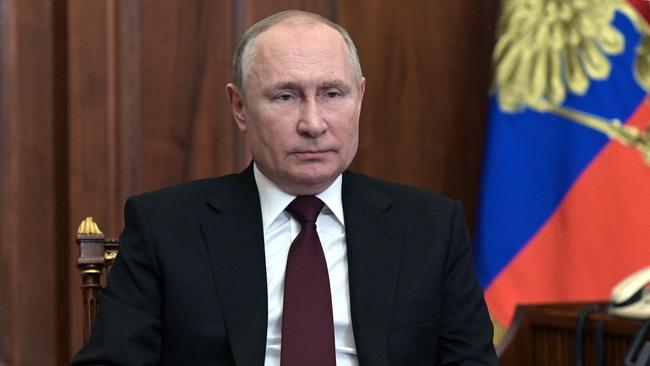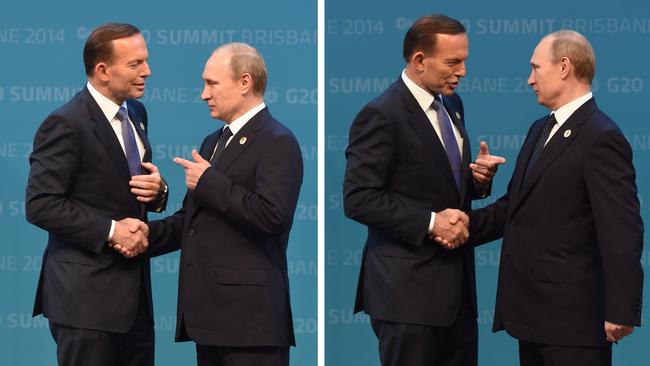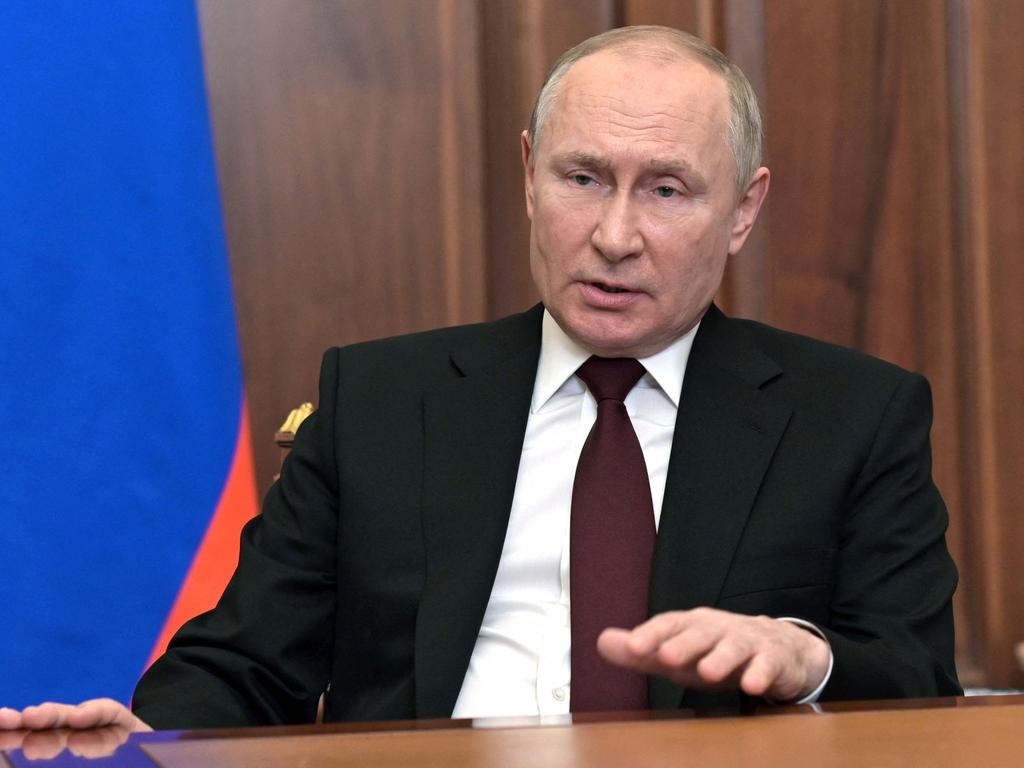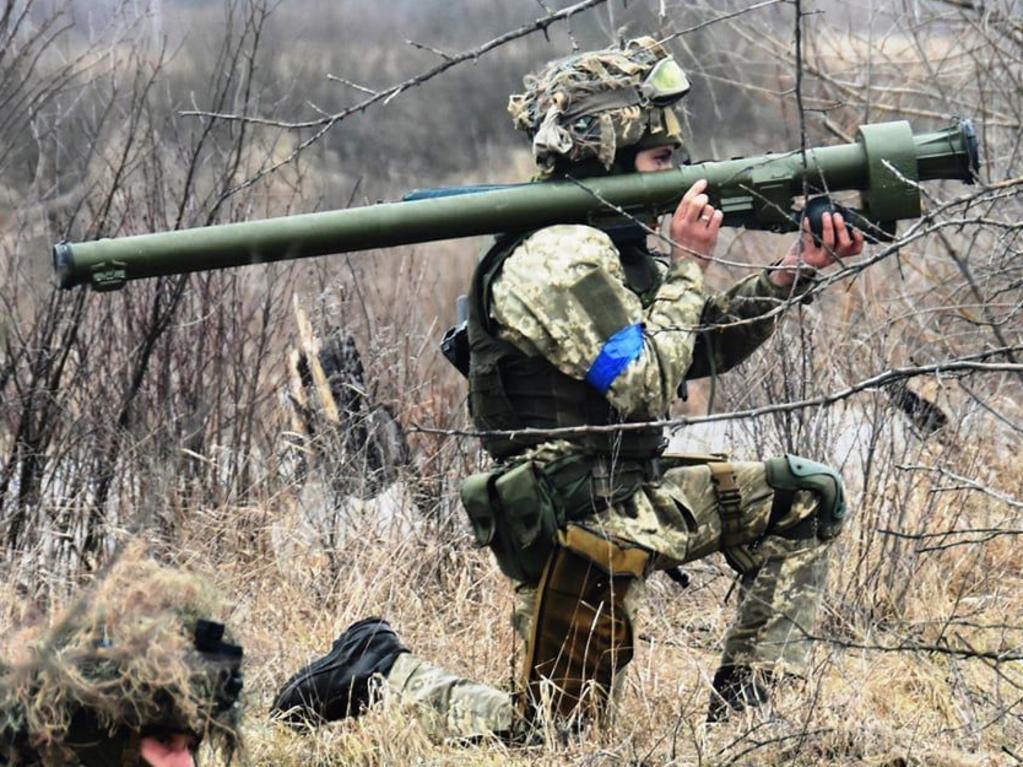A moment in which our world could all change


But regardless of how this episode plays out, let’s be under no illusion. Vladimir Putin sees himself as the new tsar, a ruler for life, determined to restore greater Russia. To that end he has invaded Georgia, annexed Crimea, occupied the Donbas, killed without compunction opponents at home and abroad, and restored Russia as a military superpower despite an economy smaller than Italy’s.
Ukraine is but his present target because it persists in looking West, not East; and because the 1994 Anglo-American security assurance, in return for the surrender of Soviet-era nuclear weapons, failed to replicate the one-in, all-in provision of article five of the NATO charter. However the stand-off ends, we can be confident Putin’s campaign will continue, remorseless, relentless, by all means up to and including all-out war, until Ukraine becomes a Russian colony. Then his attention will turn to the Baltic States, then to Poland, then to the other former Soviet satellites, until Russia is again the overlord of eastern Europe.
Of course, Putin is not Hitler and Ukraine is not Czechoslovakia, and these are not the 1930s, but there are plenty of disturbing parallels, including a new axis of great powers ready to disturb the peace to get what they want.
A fortnight ago the Russian dictator and his Chinese counterpart, Xi Jinping, issued a declaration on international relations entering a new era. We know the type of new era they have in mind from their preposterous claim that Russia and China enjoy “longstanding traditions of democracy”. The main purpose of this Moscow-Beijing axis is to bury, they say, the “political and military alliances of the Cold War era” – so no more NATO, no US troops in Japan and South Korea, and an end to the Pax Americana – through a dictators’ partnership that has “no limits” and no “forbidden areas of co-operation”.
At heart what they both reject is the US-backed world order, a liberal and humane set of understandings and arrangements that has enabled the best time in human history; with the world’s people freer, safer and more prosperous than ever. Even though they’ve both benefited from it, with a half-billion Chinese moving from the Third World to the middle class in scarcely a generation, after US president Bill Clinton bent the rules to admit China to the World Trade Organisation; and with Russia becoming a petro power that can turn Europe’s energy on and off like a tap.
So, with these latter-day dictators clearly on the march, as Lenin once asked: what is to be done? A response to the dictators starts with appreciating that just because war is unthinkable to us doesn’t make it unthinkable to them. Since the beginning of time the strong have always been tempted to take advantage of the weak; and the tough and the hungry have always sought to usurp the indolent and the soft. Throw in what Scottish philosopher David Hume recognised, that passions drive reason, and what’s unthinkable to most can become entirely reasonable to some, especially those on a quest for national glory.

As their adventurism shows, both countries’ exceptionalism includes the conviction that they should dominate their regions, if not the wider world. And, as the five decades after 1945 show, the only way to keep aggressors at bay is collective security, otherwise the strong do what they will and the weak suffer what they must.
Take eastern Europe: if it’s Russia against Ukraine, sooner or later Russia will prevail, as Russia ultimately did against Finland in 1940. Take East Asia: if it’s China against Taiwan, China inevitably will prevail. But if it’s Russia or China versus the democracies, one for all and all for one, that’s an entirely different matter.
Perhaps this military crisis might awaken the people of Western countries, so recently discombobulated by a virus and so unaccustomed to sacrifice, to how readily a freedom that’s not cherished and defended can be lost. As history shows, the best way to make potential aggressors think again is to have a contingent of allied soldiers in place so that an attack on a relatively weaker country means engaging the forces of relatively stronger ones. At the very least NATO should be ready substantially to reinforce its frontline states and to supply the Ukrainians with whatever they need to fight on. The point of this would not be to threaten Russia or China with offensive weapons; just to remind bullies of the natural solidarity that should exist between countries striving to be free.
We have to make the war that’s unthinkable to us, for moral reasons, unthinkable to them for prudential reasons. We who shrink from war because it’s morally wrong have to make others shrink from war because they’d likely lose. Of course, our instinctive initial reaction is to avoid “quarrels in faraway countries between people of whom we know nothing”. Yet what other countries’ freedom might be dispensable, if theirs is? And who would we fight alongside if not them? And if others’ fights aren’t ours, who might help us when our turn comes?
Even now I’m not sure how widely it’s grasped what’s at stake in this confrontation between democracy and autocracy, between sovereignty and subservience, and how the whole trajectory of history could change. If Russia seizes Ukraine, a new iron curtain will ring down in Europe. If China exploits the confusion to seize Taiwan, the world order would shift against the democracies as Indo-Pacific countries made the best deal they could with the red superpower or armed themselves to the teeth against it.
Meanwhile, comrades Putin and Xi watch the scuttle from Kabul, because a long-term military presence was judged to be too hard; the toppling of statues, because yesterday’s heroes have to be damned by today’s standards; and our self-flagellation over race and identity, even though there’s never been less racism, and minorities have never had a fairer go – and conclude a decadent West is unlikely to defend itself with vigour, let alone stand up for others.
They see America in retreat and no other country or collection of countries with strength and goodwill sufficient to be the guardian of peace with freedom. For all of us as individuals and for each of our countries, the challenge is to prove them wrong.
Tony Abbott was the 28th Australian prime minister. This is an edited extract of his speech on Monday to the Danube Institute in Budapest.







Few things have been more telling than the reaction of key countries to the Russian army poised on Ukraine’s borders. Britain and the US have sent antitank and anti-aircraft missiles but no troops. Germany has been reluctant even to threaten sanctions should Russia invade. In shades of Munich, France has championed a peace deal based on changing the Ukrainian constitution to meet Russia’s demands. The only ones to emerge with much credit are Ukrainians, who’ve manned their defences and insisted on their right to conduct an independent foreign policy, including to join NATO and the EU.